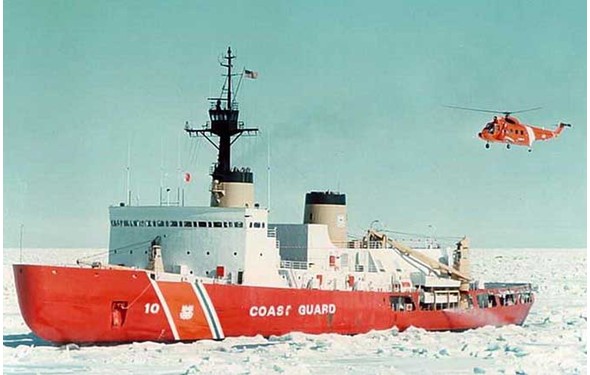The Obama administration is urging the Senate to reject a House-passed Coast Guard Authorization Bill, saying the legislation would weaken federal marine safety programs and increase costs to the Coast Guard.
In an April 17 letter to Sen. Jay Rockefeller, chairman of the Senate Commerce, Science and Transportation Committee, Brian de Vallance, acting assistant secretary for legislative affairs at the Department of Homeland Security, said the administration “strongly opposes” the House bill and urges the Senate to delete many aspects of that proposal.
“The bill would sharply increase the cost of shipping emergency food aid, potentially denying relief to more than 2 million persons in need annually,” he wrote. “Additionally, it would degrade federal marine safety regimes, increase risks within the maritime operational environment, and both increase the Coast Guard’s operating costs and prevent the service from realizing planned savings.”
Also, the letter said, the bill fails to include other Coast Guard legislative initiatives that are “critical to the Coast Guard’s response capacity.”
De Vallance says the Senate should strike the following provisions from the bill:
- A requirement that the Coast Guard Commandant maintain vessels to American Bureau of Shipping classification even after delivery. “Based on past experience, this requirement would increase costs by more than $10 million annually and could delay the ability of the Coast Guard to repair vessels when they suffer certain casualties.”
- A requirement that bars the use of Coast Guard vessels and aircraft to carry out international ice patrols unless the U.S. collects reimbursements for certain ice patrol-related costs that are performed. “If this had been in effect in fiscal year 2013, it would have placed some 94 million tons of commercial activity (including 3 million tons related to U.S.-flagged vessels) at risk in order to complete the collection of about $3 million that the U.S. government has temporarily elected not to collect from its allies. In the end, the risk could trigger an increase in Coast Guard search and rescue activities — operations that the United States would be obliged to provide that are more dangerous than the patrols themselves.”
- A requirement that the Secretary of Homeland Security exempt certain passenger vessels in the Virgin Island from U.S. law so long as these vessels are in compliance with the safety regime of the United Kingdom. The administration raises the possibility of an “adverse impact” on vessel and passenger safety.
- A requirement that Homeland Security, at the request of the owner or operator of an offshore supply vessel, delegate the certificate-of-inspection authorities to the very classification society that is in the vessel owner’s or operator’s direct employ. “Such a requirement would create a conflict of interest and the possibility of harm to lives and property.”
- A requirement that 75 percent of all food aid be transported on U.S.-flagged ships, up from 50 percent under current law. “This would increase costs of shipping food aid by about $75 million or more, funding that would otherwise allow more than 2 million people — mainly those in emergency food crises — to receive life-saving food.”
- A permanent exemption for small commercial vessels of less than 75 feet in length from having to obtain permits from the Clean Water Act to discharge substances that are incidental to their normal operations. “The administration believes that discharges from small commercial vessels and fishing vessels pose the risk of an adverse cumulative effect on the waters of the United States.”
The letter also outlines other areas of concern, including provisions that would change the way the navigability of waterways is determined, require the Coast Guard to establish an exhaustive inventory of all its property and stop the Coast Guard from dismantling Long Range Navigation (LORAN-C) infrastructure.
Additionally, the administration wants to change how the Coast Guard would issue mariner licenses to veterans wanting to take jobs in the maritime industry. The House bill would allow the Coast Guard to issue a license to any applicant who has at least three months of qualifying service on military vessels within the 7-year period immediately before the date of application, regardless of the applicant’s veteran status. The administration wants to amend this language to apply to applicants who are former armed service members and who have at least five months of qualifying service within the previous five years before date of application. “The administration strongly believes that limiting the applicant pool to former military members and narrowing the recency requirements are in the best interest of maritime safety.”
The House passed the Coast Guard and Maritime Transportation Act of 2014 in April, and the administration’s letter is an attempt to influence the Democratic-controlled Senate as it develops its version of the legislation.




